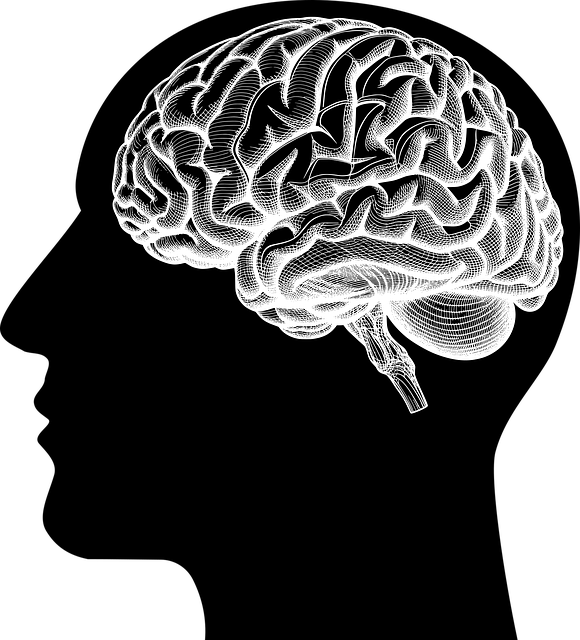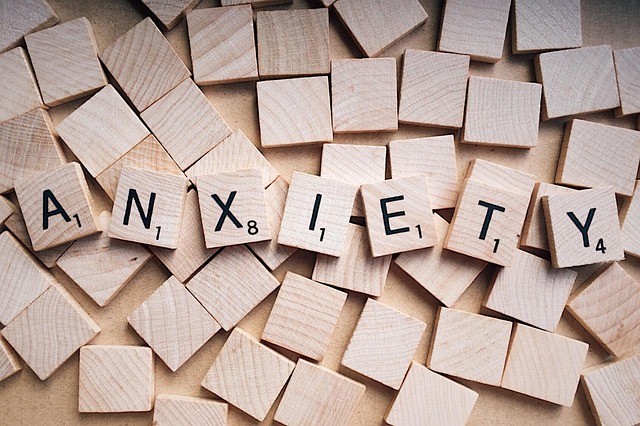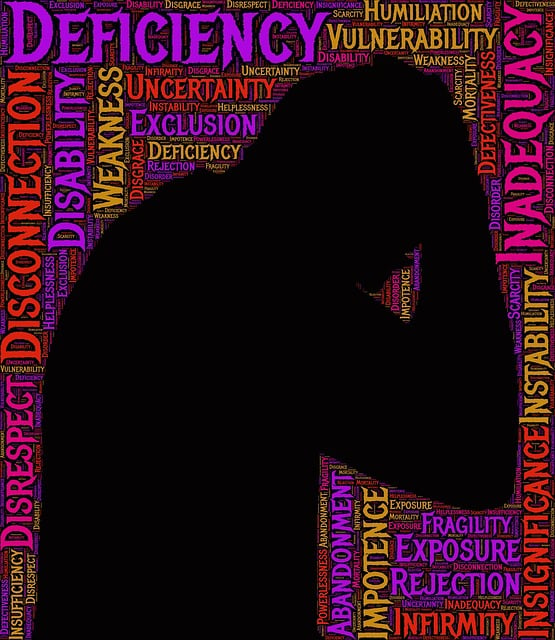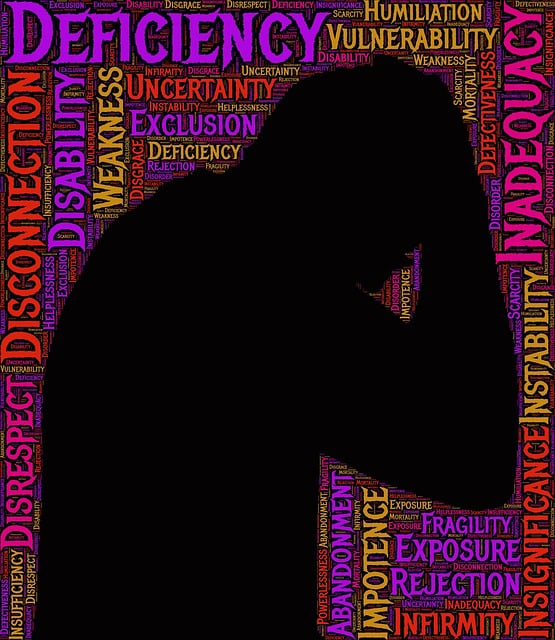Stress is a significant barrier for children with Attention Deficit Disorder/Hyperactivity Disorder (ADD/ADHD), impacting their focus and learning ability. Littleton ADD-ADHD evaluations and therapy recognize unique stress triggers, offering tailored self-care routines like journaling to build resilience. Comprehensive assessments help therapists address specific ADHD traits, teaching coping mechanisms and structured routines. Evidence-based practices like Compassion Cultivation Practice, Social Skills Training, and mindfulness enhance emotional regulation. Parent involvement through educational programs is crucial for promoting mental wellness at home.
Stress management techniques are essential tools for teaching children with ADD/ADHD, as stress can significantly impact their learning and overall mental wellbeing. This article explores various aspects of stress management, from understanding its effects on young minds to implementing effective therapy techniques and practical strategies. We delve into the role of Littleton ADD-ADHD evaluations in identifying stress triggers and highlight evidence-based therapies. Additionally, we discuss parent involvement as a powerful tool to empower families and support their child’s mental health journey.
- Understanding Stress and Its Impact on Learning in Children with ADD/ADHD
- The Role of Littleton ADD-ADHD Evaluations in Identifying Stress Triggers
- Evidence-Based Therapy Techniques to Manage and Reduce Stress
- Practical Strategies for Incorporating Stress Management into Daily Routines
- Parent Involvement: Empowering Families to Support Their Child's Mental Wellbeing
Understanding Stress and Its Impact on Learning in Children with ADD/ADHD

Stress is a common challenge faced by many children with Attention Deficit Disorder/Hyperactivity Disorder (ADD/ADHD), impacting their ability to learn and focus. Understanding the nature of stress in this population is crucial for implementing effective management strategies. Children with ADD/ADHD often experience heightened levels of stress due to their unique cognitive and behavioral characteristics, such as difficulty with impulse control and sustained attention. This can lead to a range of symptoms, including increased anxiety, restlessness, and difficulty completing tasks, all of which hinder academic performance.
In the context of Littleton ADD-ADHD evaluations and therapy, recognizing these stress triggers is essential for tailored interventions. Self-care routine development plays a pivotal role in building inner strength and enhancing mental wellness. Encouraging children to engage in regular journaling exercises, for instance, can provide an outlet for expressing emotions and processing stressful events. This simple yet powerful Mental Wellness Journaling Exercise Guidance can empower kids to gain perspective, cultivate coping strategies, and develop resilience, ultimately supporting their learning journey.
The Role of Littleton ADD-ADHD Evaluations in Identifying Stress Triggers

Littleton ADD-ADHD evaluations play a pivotal role in identifying stress triggers for individuals seeking therapy. These comprehensive assessments delve into the unique neurodevelopmental profile of each person, revealing patterns and challenges that contribute to their stress responses. By understanding specific ADHD traits and associated difficulties, therapists can tailor interventions effectively. For instance, recognizing impatience or difficulty with time management stemming from ADHD can prompt the integration of communication strategies during therapy sessions, fostering a supportive environment.
Moreover, Littleton ADD-ADHD evaluations enable individuals to develop self-care practices tailored to their needs. By identifying personal triggers and learning coping mechanisms, folks can cultivate compassion towards themselves, managing stress more proactively. This personalized approach, coupled with effective communication strategies, empowers individuals to navigate life’s demands with resilience, fostering a healthier and more balanced lifestyle.
Evidence-Based Therapy Techniques to Manage and Reduce Stress

Managing stress effectively is a valuable skill, especially for individuals navigating challenges like Attention-Deficit/Hyperactivity Disorder (ADHD). Evidence-based therapy techniques offer a structured approach to reduce stress and improve overall well-being. One such method gaining traction is Compassion Cultivation Practice (CCP), which focuses on fostering self-compassion and empathy towards oneself and others. This practice has shown promising results in reducing stress and anxiety, as well as enhancing emotional regulation skills.
In addition to CCP, Social Skills Training and Empathy Building Strategies are valuable tools for stress management. These techniques teach individuals how to navigate social interactions with confidence, improving their ability to handle stressful situations. By combining these evidence-based practices with professional guidance from therapists specializing in Littleton ADD-ADHD evaluations and therapy, individuals can develop robust strategies to manage stress and lead more fulfilling lives.
Practical Strategies for Incorporating Stress Management into Daily Routines

Stress management is an essential part of maintaining a healthy lifestyle, and incorporating effective techniques into daily routines can significantly improve overall well-being. A simple yet powerful strategy is to carve out dedicated time for relaxation and self-care. This might involve practicing mindfulness through meditation or deep breathing exercises, which can be done during short breaks throughout the day. Engaging in regular physical activity is another excellent stress reliever; whether it’s a brisk walk, yoga session, or an intense workout at a local Littleton ADD-ADHD evaluations and therapy center, staying active helps release endorphins, reducing tension and promoting a clearer mind.
Additionally, establishing structured routines can go a long way in managing stress levels. Consistency in sleeping patterns, mealtimes, and work/study schedules creates a sense of control and predictability. Incorporate activities that foster emotional healing processes, such as journaling or engaging in creative pursuits, to provide an outlet for expression and reflection. The goal is to create a balanced routine that includes both calming and energizing activities, ensuring a healthier relationship with stress over time.
Parent Involvement: Empowering Families to Support Their Child's Mental Wellbeing

Parent involvement plays a pivotal role in stress management and fostering mental wellness in children, especially those diagnosed with ADD-ADHD. Empowering families to actively support their child’s mental wellbeing can significantly enhance therapeutic outcomes. Through education and guidance, parents can learn effective strategies to manage stress, such as structured routines, positive reinforcement, and Conflict Resolution Techniques, which create a supportive home environment. This involvement ensures that the skills learned in therapy are reinforced and generalised to daily life, promoting better coping mechanisms and improved mental resilience.
Litttleton ADD-ADHD Evaluations and Therapy, for instance, offers programmes designed to engage parents in their child’s mental health journey. These initiatives include Mental Wellness Coaching Programs tailored to meet individual family needs and Cultural Sensitivity training for healthcare providers, ensuring that every member of the household feels understood and supported. By fostering a culture of open communication and cultural awareness, these approaches empower parents to navigate stress-inducing situations with confidence, ultimately contributing to their child’s long-term mental health success.
In conclusion, managing stress is an essential aspect of supporting children with ADD/ADHD. By understanding the impact of stress on learning and utilizing evidence-based therapy techniques, parents and educators can create a nurturing environment. The Littleton ADD-ADHD evaluations play a crucial role in identifying individual triggers, enabling tailored interventions. Incorporating practical strategies into daily routines, along with parental involvement, empowers families to actively promote their child’s mental wellbeing and enhance academic success.











